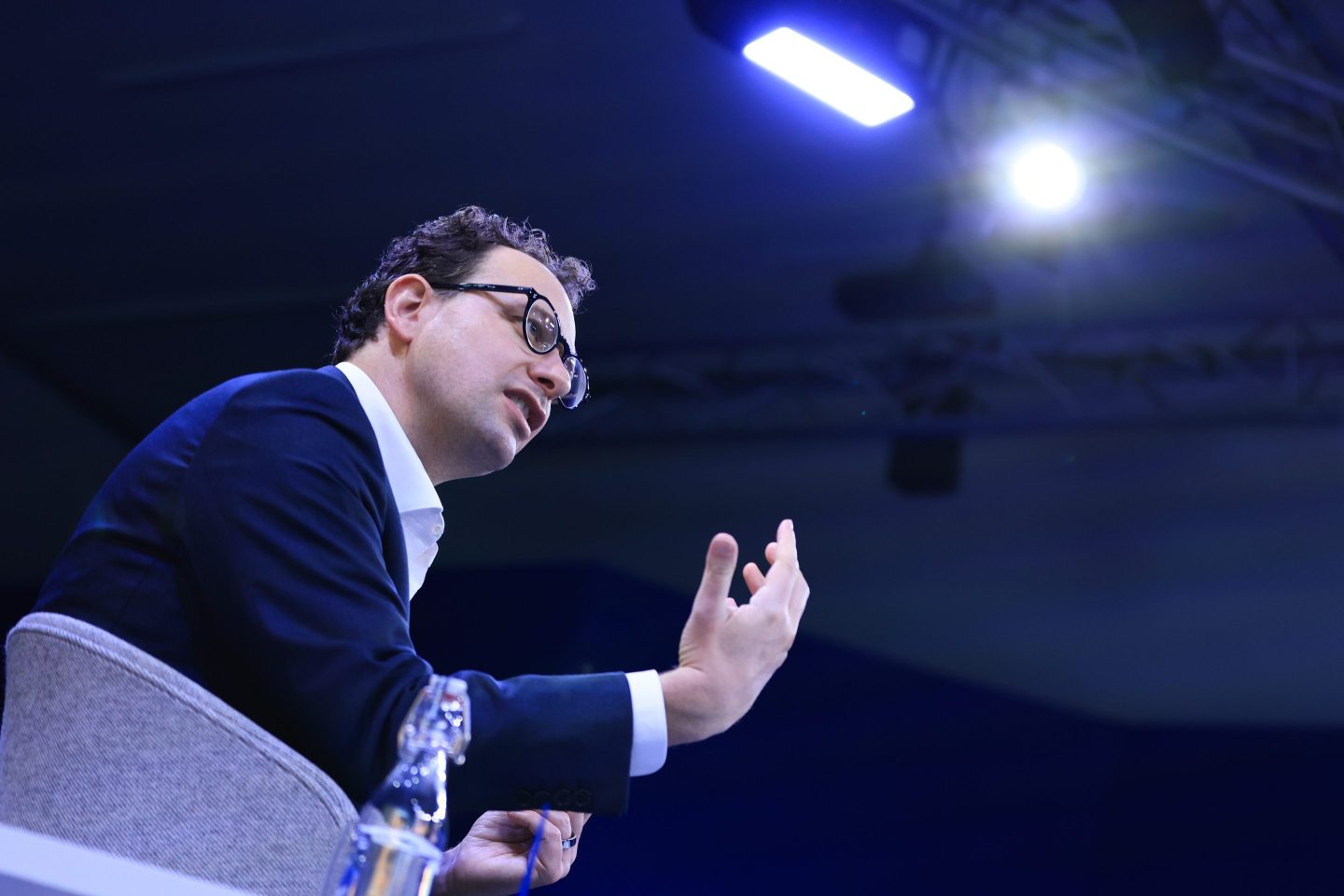Elon Musk’s Tesla may have made electric vehicles popular, but the real revolution he brought to the industry is often—and unfairly—overlooked.
Normally, if the U.S. National Highway Traffic Safety Administration (NHTSA) discovers that a third of all the cars an automaker has ever built have a flaw, that company would face an enormous logistical challenge recalling all its products from the field.
Not so Tesla. At the push of a button, Musk can deploy a fix “over the air” to 1.1 million cars to ensure they all fully comply with NHTSA’s safety requirements.
“This is a tiny over-the-air software update,” Musk wrote on Thursday, following the mandatory fix imposed by NHTSA for power windows. When you can do that, the term “recall” doesn’t really apply to fixing a car’s design flaw, as that normally conveys literally bringing one’s car to a mechanic for work.
That’s because Tesla designed its cars from the very beginning using a so-called “full stack” approach straight out of the tech industry. This consists of a base layer of code responsible for executing core functions, customer-facing applications that interact directly with the driver, and middleware that sews the two ends together.
Collectively, they allow for every aspect of a car’s operation to be changed remotely and, more important, without the need to alter any of its safety-relevant hardware.
While carmakers must still coordinate their recalls with NHTSA whether the fix is physical or digital, Musk argued the term is now “outdated and inaccurate” when it applies to Tesla.
Vertically integrated
Now every executive in the industry with shareholders to please is universally parroting their pivot to “software-defined vehicles,” which deliver features and innovations primarily through programming ones and zeroes rather than improving costly nuts-and-bolts mechanics.
“Tesla is the quintessential leader of this trend,” wrote consulting firm Deloitte in a study last year.
It’s one of the primary advantages of Tesla’s vertical integration—for years a term reviled by Wall Street that only became fashionable thanks to the emergence of Musk’s EVs.
Previously, automakers were pushed by investors to outsource as much of their componentry as possible so they could focus only on their core strengths of design, engine development, and vehicle production, where margins were the highest.
Some brands like Porsche were famous in the industry for farming out as much work as possible and would even boast in the past that their operations were so lean only 20% of the value of their luxury cars actually got delivered by the company itself. The rest came from suppliers.

Under this lean approach, a car company’s job was to act more as a conductor of an orchestra. It would look at what customer segment is most profitable, design a car to meet those needs, issue a catalog of performance specifications it would fulfill, issue a tender for providers capable of delivering the needed technology, procure a puzzle box of components from hundreds of suppliers and sub-suppliers, ensure they work safely when put together, and then begin mass manufacturing.
According to an estimate from the Volkswagen brand, however, this did not come without cost. This process included integrating dozens of separately programmed electronic control units and resulted in roughly 10,000 software bugs each time a new model was developed.
The total annual bill to stamp them out amounted to roughly 200 million euros, one reason its parent company founded a separate subsidiary tasked only with programming software for vehicles.
“The software-defined vehicle’s transformation will be an inexorable trend driving the development of the automotive industry over the next five to 10 years,” Deloitte concluded.
Yet acquiring the coding expertise of Musk’s Tesla is anything but easy for legacy carmakers. Disappointing demand for VW’s new range of ID electric vehicles due to its clunky IT, together with rollout delays at the Cariad software subsidiary, were key reasons the Porsche and Piëch families sacked CEO Herbert Diess in July.
Sign up for the Coins2Day Features email list so you don’t miss our biggest features, exclusive interviews, and investigations.













